Suruc massacre: At least 30 killed in Turkey border blast
- Published
Video footage shows a group of young people gathered around a banner before the blast
A bomb attack in the Turkish town of Suruc has killed at least 30 people during a meeting of young activists to discuss the reconstruction of the neighbouring Syrian town of Kobane.
Around 100 others were wounded in the explosion, which may have been caused by a female suicide attacker from the Islamic State group, officials say.
Kobane has seen heavy fighting between IS militants and Kurdish fighters.
It was retaken by the Kurds from IS forces earlier this year.
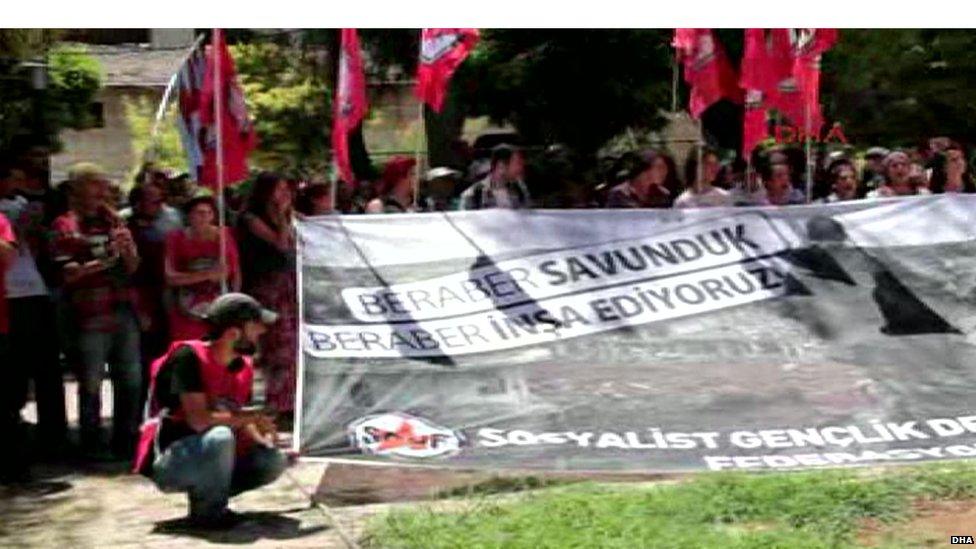
Video footage showed the group just before the blast
Turkey's Prime Minister Ahmet Davutoglu said initial findings suggested the attack was the work of IS.
"Turkey has taken and will continue to take all necessary measures against Islamic State," Mr Davutoglu told a news conference in Ankara, according to Reuters.
"Measures on our border with Syria... will be increased," he added.
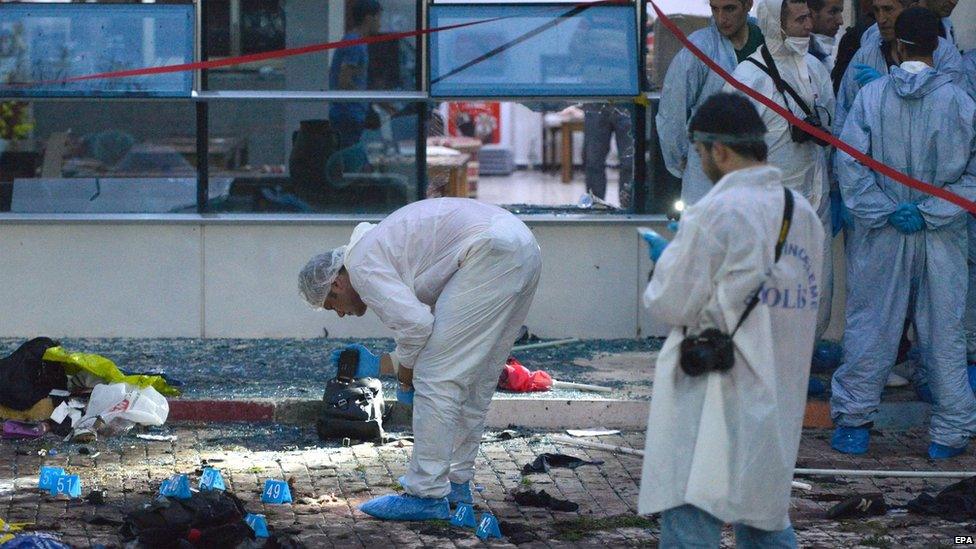
The Federation of Socialist Youth Associations (SGDF) is reported to have had at least 300 members staying at the Amara Culture Centre in Suruc, where the explosion happened.
The young people had been planning to travel to Kobane to help with rebuilding the town.
A video released on social media apparently showed the moment of the blast, at a news conference taking place in the centre's garden.
In the video, a group of young people are chanting slogans while holding the federation's flags and a large banner with the words: "We defended it together, we are building it together."
Then an explosion rips through the assembled youngsters.
Graphic images of the aftermath show bodies littering the ground, with the red flags being used to cover them.
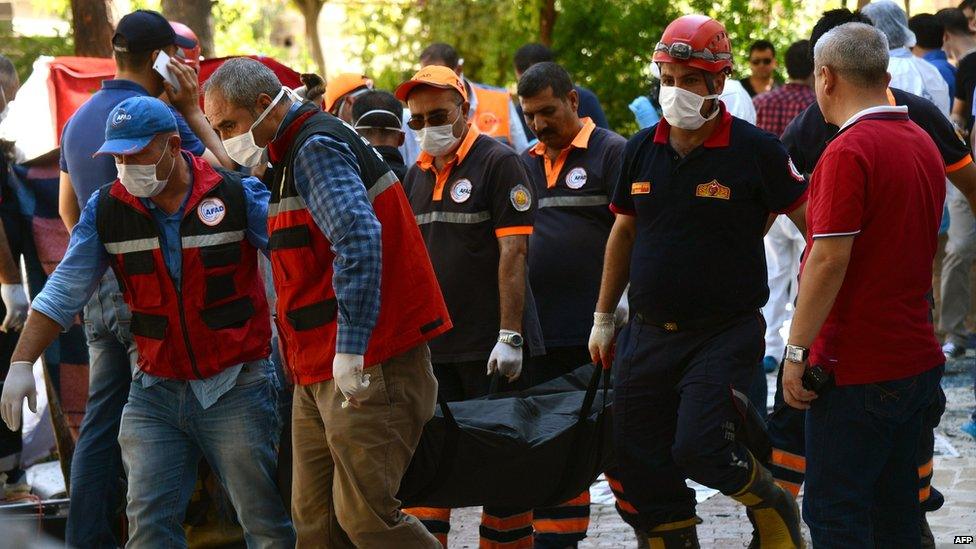
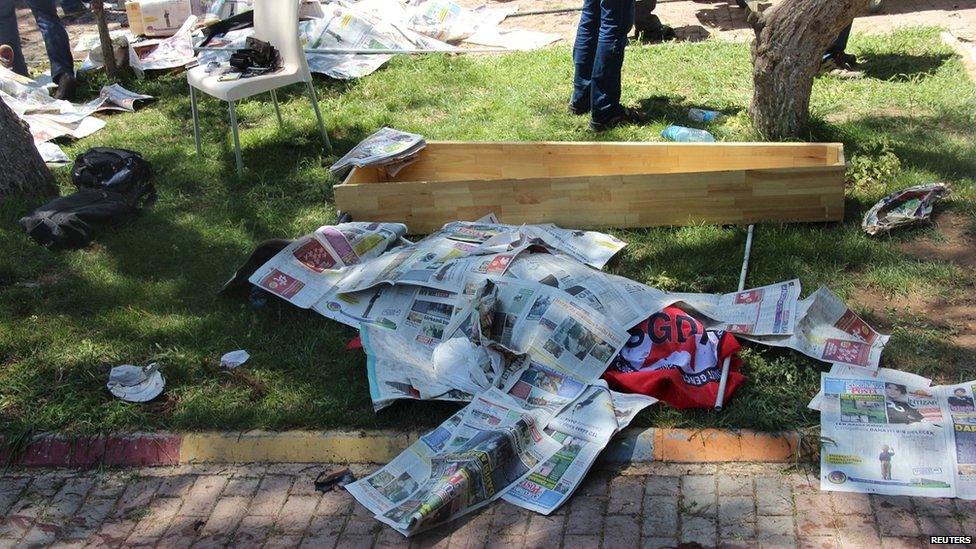
The district governor of Suruc, Abdullah Ciftci, said: "The fact that it is a suicide attack increases the possibility that IS is responsible.
"We think the attacker was a woman.
"Preliminary findings show that she was acting on her own," he told BBC Turkish.
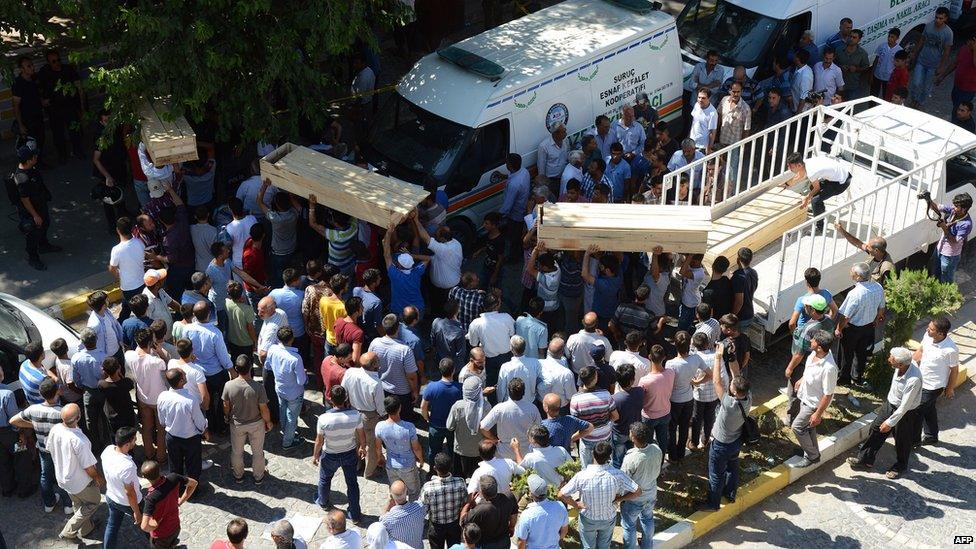
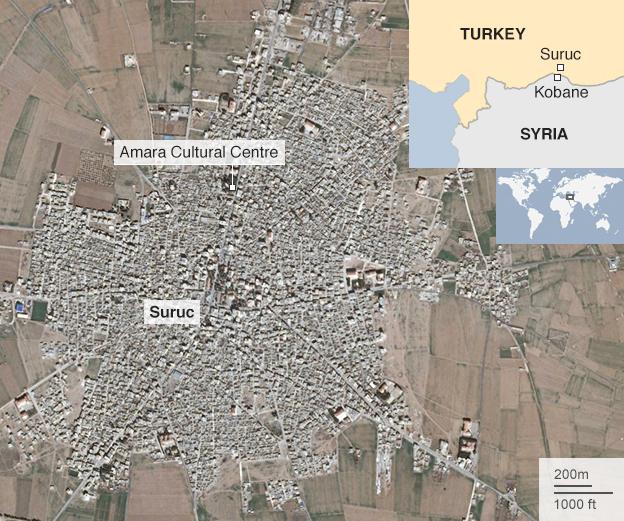
A local journalist, Faruk Baran, told BBC Turkish that there was panic in Suruc after the attack, with shopkeepers closing up for fear of a second attack.
Suruc residents had feared that they could be IS's next target ever since the attack on the pro-Kurdish party's election rally in Diyarbakir on 5 June, he said.
Suruc houses many refugees who have fled the fighting in Kobane.
IS overran the Syrian town in September last year, but it was retaken by Kurdish forces in January.
In June Kobane once more came under assault from IS, with hundreds dead, but the militants were driven out again.
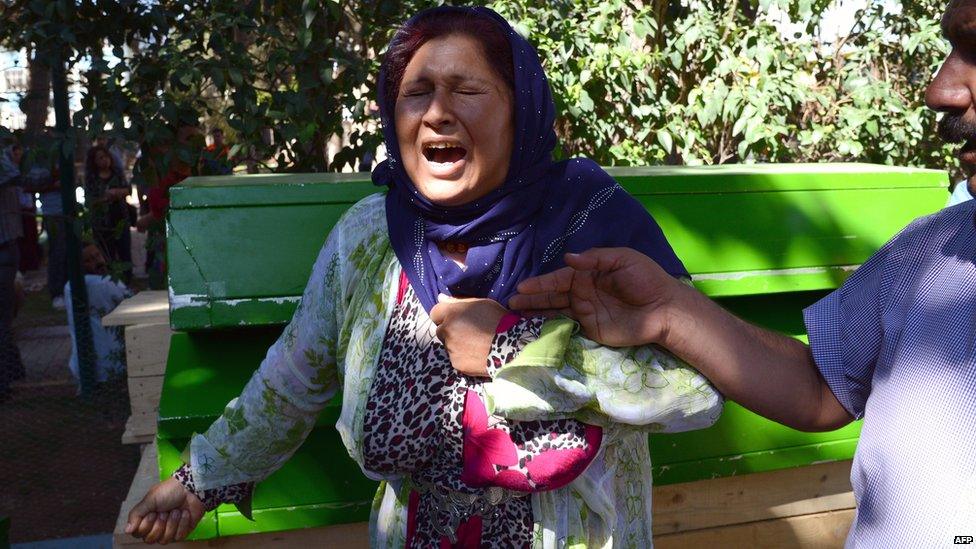

Analysis: Jiyar Gol, BBC regional expert
The suicide bomb attack on the Amara Cultural Centre is one of the bloodiest suicide attacks in Turkey in years.
Suruc is a small Kurdish-majority city just a 15-minute drive from the border with Kobane. Kurdish activists in Suruc played a vital role during the siege of Kobane, sending food and medicine to the YPG Kurdish fighters to bolster their supplies. Many journalists and foreign fighters who wanted to go to Kobane went to Suruc and from there were sent on.
At the time of the attack, 300 young activists were preparing to make a statement and cross the border into Kobane to help to rebuild the city.
Local Kurdish politicians in Suruc blame the Islamic State (IS) group for the attack. IS suffered a heavy loss and defeat in Kobane earlier this year. Also last month the YPG captured Tal Abyad, one of the most important IS border crossings with Turkey. Kurds believe the militant group wants to take revenge on civilian Kurds inside Turkey.
In June it was reported to have carried out numerous attacks on Turkey's pro-Kurdish Party, HDP, during the run-up to the Turkish parliamentary elections, but IS never said it was responsible.
The group is believed to have many sympathisers inside Turkey and they could carry out attacks against additional targets.
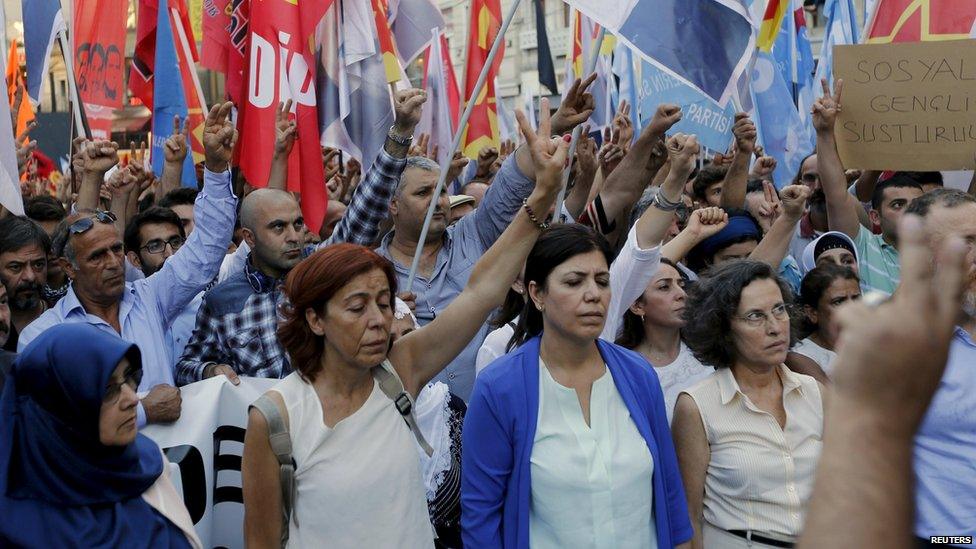
On Friday evening people gathered in central Istanbul to hold a minute's silence for the victims